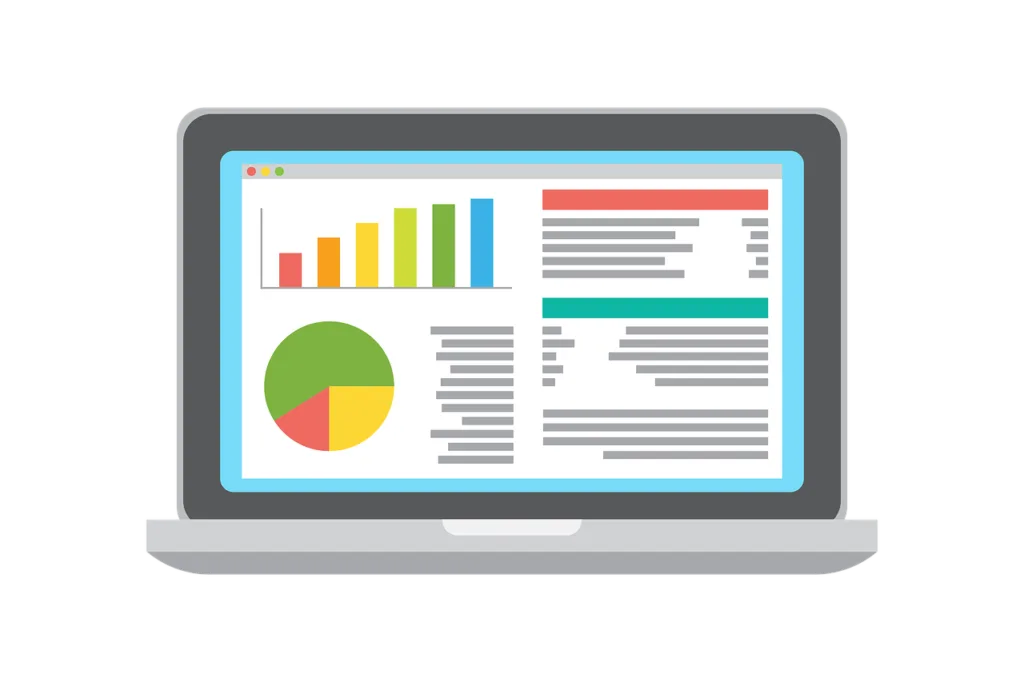In today’s digital age, social media management tools have become indispensable for businesses and marketers aiming to amplify their online presence. Among the plethora of options available, SocialPilot and Social Report stand out as two of the most popular platforms. But which one is the right fit for you? In this deep dive, we’ll compare these giants on various fronts to help you make an informed decision. Let’s jump right in and start with a crucial aspect: User Interface and Ease of Use.
| SocialPilot | Social Report |
|---|---|
 |  |
| G2 Score – 4.5 out of 5 stars | G2 Score – Nil |
| TrustRadius Score – 7.2 out of 10 | TrustRadius Score – 10.0 out of 10 |
User Interface and Ease of Use
When it comes to managing your social media, the last thing you want is a tool that feels like navigating through a labyrinth. A platform’s user interface (UI) and ease of use can significantly impact your daily operations, productivity, and ultimately, your social media performance.
SocialPilot: Simplicity Meets Functionality
SocialPilot prides itself on its straightforward and clean interface. When you first log in, you’re greeted with a dashboard that’s intuitive and easy to navigate. The learning curve is gentle, making it ideal for beginners or those who prefer simplicity over complex features.
The dashboard gives you a quick overview of your social media activity, upcoming posts, and performance metrics. Adding accounts, scheduling posts, and accessing reports can be done in just a few clicks. SocialPilot’s layout is designed with clarity in mind, ensuring that you can focus on what matters: creating and managing your content without getting bogged down by unnecessary details.
Social Report: Comprehensive but Cluttered
Social Report offers a robust platform with a wide range of features. However, this abundance comes with a cost: a cluttered interface that can overwhelm new users. The dashboard is packed with data and tools, which, while useful, can make the initial experience daunting.
Navigating through Social Report’s features requires a steeper learning curve compared to SocialPilot. However, for power users or those with specific needs for detailed analytics and reporting, the complexity might be justified. Once you get the hang of it, Social Report becomes a powerful ally, offering deep insights and customization options that few platforms can match.
Making the Right Choice for You
Choosing between SocialPilot and Social Report comes down to your personal preferences, experience level, and what you aim to achieve with your social media strategy. If you’re looking for an easy-to-use platform that covers all the basics and gets you up and running quickly, SocialPilot is the way to go. Its user-friendly interface and straightforward functionality make it a great choice for small to medium-sized businesses or those who are new to social media management.
On the other hand, if you’re a seasoned marketer or a large organization with complex social media needs, Social Report’s comprehensive features and detailed analytics could be exactly what you need. The learning curve is worth climbing if you require deep insights and extensive reporting capabilities. Both platforms offer trial periods, so my advice is to test them out. See which interface speaks to you, which workflow fits your daily routine better, and which tool’s features align best with your social media goals.
Analytics and Reporting
In the world of social media, data is king. Understanding how your content performs can help you tailor your strategy, engage better with your audience, and ultimately, drive more traffic and conversions. Let’s see how SocialPilot and Social Report stack up in the analytics and reporting arena.
SocialPilot: Straightforward Insights
SocialPilot offers a comprehensive analytics suite that’s surprisingly easy to digest. You can track the performance of your posts across different platforms, measure engagement rates, and get a clear picture of your audience demographics. What sets SocialPilot apart is its ability to present data in an accessible way. You don’t need to be a data scientist to make sense of your social media performance.
The platform provides visual reports that can be customized and exported, making it easy to share insights with your team or clients. While it covers all the basics and then some, SocialPilot’s analytics might not delve as deep as some may require for highly nuanced strategies. However, for the majority of users, its reporting capabilities strike the perfect balance between comprehensiveness and usability.
Social Report: Deep Dives into Data
Social Report takes analytics to another level. If you’re the type who loves diving into numbers, you’ll appreciate the depth and breadth of data available here. The platform offers detailed insights into every aspect of your social media presence, from audience growth and profile analytics to competitor analysis and beyond.
What truly stands out is Social Report’s ability to track conversions and attribute them to specific posts or campaigns. This feature is invaluable for marketers focused on ROI and looking to fine-tune their strategies based on solid data. However, this wealth of information can be overwhelming for some, and the platform’s reporting features require a more hands-on approach to sift through the data and extract actionable insights.
Choosing What’s Best for Your Needs
When it comes to analytics and reporting, the choice between SocialPilot and Social Report hinges on your specific needs and how deep you want to dive into your data. If you’re after a tool that offers clear, actionable insights without overwhelming you with too much information, SocialPilot is your best bet. Its user-friendly reports are perfect for small to medium-sized businesses that need to keep a pulse on their performance without getting lost in the weeds.
Conversely, if you’re a data-driven marketer or an agency that needs to provide detailed reports to clients, Social Report offers the granularity and depth required to make informed decisions. Its advanced analytics features are well-suited for those who need to track conversions meticulously and analyze their social media efforts in great detail.
Content Management and Scheduling
Efficient content management and scheduling are at the heart of any successful social media strategy. This involves not just planning when to post, but also managing your content calendar, collaborating with your team, and ensuring your content is consistent and on-brand across all channels. Let’s examine how SocialPilot and Social Report handle these crucial tasks.
SocialPilot: Streamlining Your Social Media Calendar
SocialPilot simplifies the process of content management and scheduling with its user-friendly interface. Its calendar feature allows you to visualize your social media strategy at a glance, making it easy to plan and schedule posts across multiple platforms. You can create posts directly within the calendar, drag and drop to reschedule, and even bulk schedule posts, which is a huge time-saver for marketers managing several accounts.
Collaboration is another strong suit of SocialPilot. The platform enables you to work with your team seamlessly, assigning roles and permissions to ensure that everyone can contribute without stepping on each other’s toes. This feature is particularly useful for agencies or businesses with a social media team looking to streamline their workflow and maintain a cohesive content strategy.
Social Report: Advanced Scheduling with a Learning Curve
Social Report offers a powerful set of features for content management and scheduling, but with a bit more complexity. The platform’s scheduling capabilities are robust, allowing for detailed planning and automation of your social media posts. Like SocialPilot, Social Report supports bulk uploading, which is essential for marketers looking to save time.
Where Social Report tries to differentiate itself is in its smart scheduling feature, which suggests the best times to post based on your audience’s activity. This can help increase engagement by ensuring that your content reaches your followers when they are most active. However, leveraging these advanced features can take some getting used to, and the platform’s comprehensive options might be more than what some users need.
Finding the Right Balance for Your Team
The right content management and scheduling tool for you will depend on your team’s size, the complexity of your social media strategy, and how much time you’re willing to invest in learning the platform.
SocialPilot is ideal for businesses and agencies that value simplicity and efficiency. Its straightforward scheduling and collaboration features make managing your social media presence a breeze, without sacrificing functionality. Whether you’re a small business owner or a social media manager juggling multiple accounts, SocialPilot offers the tools you need to keep your content organized and your team on the same page.
For those who require more sophisticated scheduling options and are willing to climb the learning curve, Social Report offers a comprehensive solution. Its smart scheduling and in-depth customization options can be a game-changer for businesses focused on maximizing engagement and tailoring their content to their audience’s preferences.

Related: Check out our free SEO suite

Integration Capabilities
In the digital age, the ability of a social media management tool to integrate with other applications and services is a significant consideration. These integrations can enhance your social media strategy, streamline your workflow, and ensure a seamless connection between your marketing tools. Let’s dive into the integration capabilities of SocialPilot and Social Report to see how they extend their functionality beyond just social media management.
SocialPilot: Wide Array of Integrations
SocialPilot understands the importance of a connected ecosystem in digital marketing. It supports integrations with a wide range of platforms and services, from content creation tools to analytics and customer relationship management (CRM) systems. This makes it easier for businesses to maintain a cohesive and efficient workflow across all their marketing efforts.
One of the standout features of SocialPilot is its integration with Canva, which allows users to create visually appealing graphics directly within the SocialPilot interface. This seamless connection streamlines the content creation process, making it quicker and easier to design and schedule posts that catch the eye.
Furthermore, SocialPilot’s integration with Google Analytics enables marketers to track the effectiveness of their social media campaigns in driving traffic to their websites. By linking social media performance with web analytics, businesses can gain a more comprehensive understanding of their online presence and adjust their strategies accordingly.
Social Report: Deep Integration for Enhanced Functionality
Social Report takes integrations to the next level by offering deep connections with a broad spectrum of platforms. Beyond the standard social media networks, Social Report integrates with e-commerce platforms, CRM systems, and even other marketing tools. This extensive range of integrations is designed to provide a holistic view of your digital marketing efforts and enhance the impact of your social media campaigns.
A key feature of Social Report is its ability to track e-commerce transactions and attribute them to specific social media activities. For businesses selling online, this integration is invaluable, as it provides clear insights into the ROI of social media campaigns. By understanding which posts and platforms drive sales, marketers can optimize their strategies for better results.
Additionally, Social Report’s integration with popular CRM systems allows for a more personalized approach to social media marketing. By syncing customer data with social media interactions, businesses can tailor their content and campaigns to better meet the needs and interests of their audience.
Choosing the Right Tool for Your Ecosystem
The choice between SocialPilot and Social Report in terms of integration capabilities comes down to the specific needs of your business and the complexity of your digital marketing ecosystem.
If you’re looking for a tool that integrates smoothly with content creation platforms and analytics tools, providing a streamlined workflow for managing your social media content, SocialPilot is a great option. Its user-friendly approach ensures that you can take advantage of these integrations without a steep learning curve.
On the other hand, if your business relies heavily on e-commerce or you’re looking for deep insights into how social media drives sales and customer engagement, Social Report’s extensive integration capabilities make it a compelling choice. Its ability to connect with a wide range of platforms can provide a comprehensive view of your digital marketing efforts and drive more targeted, effective campaigns.
Pricing: SocialPilot vs Social Report
When it comes to choosing a social media management tool, pricing plays a crucial role. It’s not just about finding a tool that fits within your budget but also ensuring that you’re getting value for your money. Let’s break down the pricing structures of SocialPilot and Social Report to help you understand what each platform offers and which might provide the best return on investment for your needs. Both SocialPilot and Social Report adopt a tiered pricing model, offering various plans based on the features and capabilities that users need. This approach allows businesses of different sizes and with different needs to find a plan that suits them best.
| SocialPilot | Professional Plan: Starting at $25.50 per month (billed annually) for 10 social media accounts, 1 user, and includes analytics and scheduling.Small Team Plan: At $42.50 per month (billed annually), offering 25 social media accounts, 3 users, and additional collaboration features.Agency Plan: Starting at $85 per month (billed annually), with 50 social media accounts, 5 users, and includes white label reports.Enterprise Plan: Custom pricing for larger organizations or those needing more accounts or users, with tailored features to fit their needs. |
| Social Report (now known as Traject Social) | Standard Plan: Pricing started around $49 per month, offering full access to all features for small businesses and professional marketers. Advanced Plan: Aimed at larger businesses and agencies, starting around $99 per month, with additional collaboration tools and higher limits. Enterprise solutions: Were available with custom pricing for large organizations needing bespoke features and support. |
SocialPilot: Affordable and Scalable
SocialPilot is known for its competitive pricing, making it an attractive option for small to medium-sized businesses and agencies. The platform offers a range of plans, starting with a basic tier that includes essential features like scheduling and analytics. As you move up the tiers, you gain access to more advanced features, such as team collaboration tools and white-label reports, which are particularly appealing for agencies looking to present data to clients in a branded format.
One of the strengths of SocialPilot’s pricing structure is its scalability. You can start with a lower-tier plan and easily upgrade as your business grows and your social media management needs become more complex. This flexibility ensures that you’re not paying for more than you need at any stage of your business’s development.
Social Report: Comprehensive but Costlier
Social Report positions itself as a more premium option, with pricing that reflects the comprehensive nature of its features. The entry-level plan is priced higher than SocialPilot’s, but it includes access to a wider range of capabilities, including some of the advanced analytics and integration features that we’ve discussed earlier.
As with SocialPilot, Social Report offers several tiers, each adding more features and allowing for more social profiles and users. This makes it suitable for larger organizations or agencies that manage numerous accounts and need deep insights into their social media performance.
Social Report’s pricing model is designed to cater to businesses that require extensive social media management capabilities and can justify the higher cost with the return on investment these features provide. It’s worth noting that for businesses that rely heavily on social media for customer engagement and sales, the advanced features of Social Report could well be worth the extra expense.
Making the Right Investment
Choosing between SocialPilot and Social Report from a pricing perspective depends on your budget, the scale of your social media operations, and the specific features you need to effectively manage your online presence. If you’re looking for a cost-effective solution that covers all the basics and more, SocialPilot offers great value for money. Its affordable plans are packed with features that meet the needs of most small to medium-sized businesses and provide room to grow.
On the other hand, if your business requires advanced analytics, deep integrations, and comprehensive reporting capabilities, and you have the budget to match, Social Report could be the right investment. Its premium pricing is justified by the extensive range of features and the potential to drive significant ROI through targeted, data-driven social media campaigns. Ultimately, the best approach is to carefully assess your needs, consider the long-term value each platform can provide, and choose the one that aligns with your business goals and budget.
Customer Support and Community
In the dynamic world of social media management, having access to responsive customer support and a vibrant community can be as crucial as the features and pricing of the tool itself. The quality of support can greatly influence user satisfaction and the overall effectiveness of the platform in addressing your needs. Let’s take a closer look at how SocialPilot and Social Report fare in terms of customer support and community engagement.
SocialPilot: Responsive Support and Growing Community
SocialPilot has built a reputation for offering attentive and helpful customer support. Users can reach out via email or chat, and there’s a wealth of resources available, including tutorials, FAQs, and a comprehensive knowledge base. This makes it easier for users to find answers to common questions and troubleshoot issues independently.
Beyond direct support, SocialPilot is also focused on building a community around its platform. Through webinars, social media groups, and forums, users can connect, share insights, and learn from each other. While the community is still growing, the effort SocialPilot puts into engaging with its users is evident and adds value to their overall service.
Social Report: In-depth Support with a Learning Center
Social Report emphasizes providing detailed support to its users. The platform offers support through email, chat, and phone, ensuring that users can get help in the way that suits them best. What sets Social Report apart is its extensive learning center, which includes guides, how-tos, and video tutorials designed to help users maximize their use of the platform.
The learning center is particularly beneficial given the complexity and depth of Social Report’s features. Users can dive deep into specific functionalities, learning how to leverage the platform’s advanced analytics and integration capabilities to their full extent.
Social Report also encourages community engagement through its blog, where it shares insights on social media trends and best practices. However, compared to SocialPilot, the sense of an active, user-driven community might be less pronounced, with the focus more on providing users with the information they need to use the platform effectively.
The Importance of Support and Community
The level and quality of customer support and community engagement can significantly impact your experience with a social media management tool. Whether you’re a novice needing guidance on basic features or an experienced marketer looking to exploit advanced functionalities, having access to responsive support and a knowledgeable community can enhance your productivity and effectiveness.
SocialPilot appeals to users who value a combination of responsive support and community engagement. Its efforts to foster a sense of community among its users, coupled with its accessible support options, make it an attractive choice for businesses looking to grow their social media presence in a supportive environment.
Social Report, with its in-depth learning resources and multiple support channels, is well-suited for users who anticipate needing detailed guidance to navigate its comprehensive features. The platform’s focus on education, through its learning center and blog, caters to users who are keen on not just solving immediate issues but also on understanding the intricacies of social media management.
Making Your Choice
Deciding between SocialPilot and Social Report may come down to which type of support and community engagement resonates more with your working style and needs. If you prefer a platform that combines accessible customer support with efforts to build an engaged user community, SocialPilot is worth considering. On the other hand, if you value extensive educational resources and multiple support channels to help you make the most of a platform’s advanced features, Social Report could be the better choice. Both platforms offer strong support and resources to their users, but the best fit for you will depend on your preferences for learning and community interaction, as well as the complexity of your social media management needs.
Conclusion
Choosing between SocialPilot and Social Report for your social media management needs comes down to a balance of features, pricing, usability, and the type of support that best fits your workflow. SocialPilot shines with its user-friendly interface, affordable pricing, and a growing community that supports collaboration and learning. It’s an excellent choice for small to medium-sized businesses and agencies looking for an efficient and scalable solution.
On the other hand, Social Report appeals to those who require deep analytics, extensive integration capabilities, and a comprehensive learning center to navigate its advanced features, making it suitable for larger organizations or those with complex social media strategies. Ultimately, the best tool for you will align with your business goals, team size, and the level of detail you need in your social media campaigns. Both platforms offer unique strengths, and choosing the right one depends on your specific needs, budget, and how you prefer to interact with your social media management tool.
Read Next
- 31+ Top Social Media Management tools Compared! (2023)
- Special Holiday SEO Strategies for Travel Websites
- SEO Strategies for Peak Travel Seasons
- Future of Voice Assistants in Travel and Hospitality SEO
- How Machine Learning is Shaping SEO in Travel






















Comments are closed.